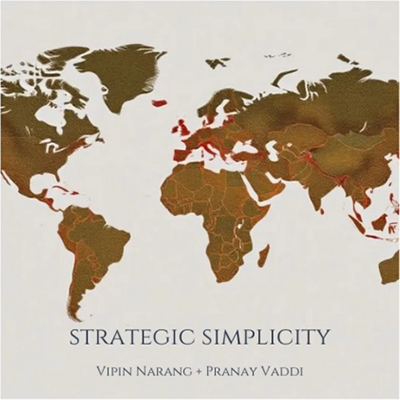Pranay Vaddi & Vipin Narang | Strategic Simplicity
March 14, 2025

Ultimately, there is no replacing the U.S. nuclear backstop. The changes the United Kingdom and France would need to make as the European nuclear guarantors are considerable. As impossible as it may be to develop an America-less deterrent capable of defending Europe from Russia, the topic deserves further exposition if Europe intends to go down this road.
-CNSP Senior Fellow, Pranay Vaddi & Vipin Narang in Strategic Simplicity's latest article.
Six weeks since President Trump’s inauguration, the consequences of big, unfettered shifts in U.S. foreign policy are emerging. European leaders are considering a strategic deterrent independent of the U.S. nuclear arsenal for the first time. Previous discussions of a so-called “Euro Deterrent” assumed that U.S. nuclear forces would continue to serve as the ultimate backstop to deter Russia from strategic attacks against European allies and the United States itself. Increasingly, that may be a dubious assumption.
However, beyond rhetorical declarations, erecting and extending a credible Euro Deterrent through the combined forces of the France and United Kingdom will be incredibly difficult. The nuclear marriage between U.S. and Europe is not easily unraveled. NATO’s nuclear deterrent was developed to be credible, even beyond “until death do us part,” with coordinated plans, operations, and policies to convince allies that the United States would and could effectively defend them all from Russian strategic attack.
Ultimately, there is no replacing the U.S. nuclear backstop. The changes the United Kingdom and France would need to make as the European nuclear guarantors are considerable. As impossible as it may be to develop an America-less deterrent capable of defending Europe from Russia, the topic deserves further exposition if Europe intends to go down this road.
The Way it Is, and Why
As two officials with responsibility for nuclear policy in the Biden Administration, we along with many others see nuclear proliferation as a by-product of eroding U.S. security commitments. Over the course of our time in government, we worked hard to bolster these decades-old commitments. Since 1949, the United States formally extended its nuclear arsenal to the defense of European allies. Even today, NATO documents state:
"Nuclear deterrence has been at the core of NATO’s mutual security guarantee and collective defence since the creation of the Alliance in 1949."
From Strategic Simplicity
